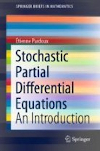- About MAA
- Membership
- MAA Publications
- Periodicals
- Blogs
- MAA Book Series
- MAA Press (an imprint of the AMS)
- MAA Notes
- MAA Reviews
- Mathematical Communication
- Information for Libraries
- Author Resources
- Advertise with MAA
- Meetings
- Competitions
- Programs
- Communities
- MAA Sections
- SIGMAA
- MAA Connect
- Students
- MAA Awards
- Awards Booklets
- Writing Awards
- Teaching Awards
- Service Awards
- Research Awards
- Lecture Awards
- Putnam Competition Individual and Team Winners
- D. E. Shaw Group AMC 8 Awards & Certificates
- Maryam Mirzakhani AMC 10 A Awards & Certificates
- Two Sigma AMC 10 B Awards & Certificates
- Jane Street AMC 12 A Awards & Certificates
- Akamai AMC 12 B Awards & Certificates
- High School Teachers
- News
You are here
Stochastic Partial Differential Equations

Publisher:
Springer
Publication Date:
2021
Number of Pages:
82
Format:
Paperback
Price:
69.99
ISBN:
978-3-030-89002-5
Category:
Monograph
[Reviewed by , on ]
Eric Strachura
06/6/2022
This set of notes developed by the author provides a concise introduction to the classical theory of stochastic partial differential equations. The book assumes a basic knowledge of probability and begins with a number of motivating examples. The main types of equations under consideration are of the form
\( \frac{\partial u}{\partial t}(t,x)=F(t,x,u(t,x),Du(t,x),D^{2}u(t,x))+G(t,x,u(t,x),Du(t,x))W(t,x) \)
and the semi-linear case
\( \frac{\partial u}{\partial t}(t,x)=\Delta u + f(t,x,u(t,x))+g(t,x,u(t,x))W(t,x) \)
where \( W \) is either white noise in time and colored noise in space, or white noise in both time and space.
After providing a number of motivating examples, the author provides a brief introduction to stochastic partial differential equations as infinite dimensional stochastic differential equations. Close analogies are drawn to the classical theory of partial differential equations (variational approaches, semigroup theory, etc.).
Finally, the author considers stochastic partial differential equations driven by space-time white noise. The basic existence-uniqueness result is discussed, and the author shows why one must restrict to the case of one spatial dimension. In addition, the author presents an application of the Malliavin calculus to white-noise driven stochastic partial differential equations, which allows for sufficient conditions for the law of the random
variable to have a density with respect to Lebesgue measure.
This book is not comprehensive but serves as a solid introduction to recent developments in the classical theory of stochastic partial differential equations. This book is a nice introduction to the subject matter for those unfamiliar with the topic. The author is direct, and the small size of the book makes it very approachable. Plenty of references are provided for those who wish to dive deeper into the topic.
Eric Stachura is currently an Assistant Professor of Mathematics at Kennesaw State University. He is generally interested in analysis and partial differential equations.
See the publisher's website.
- Log in to post comments




